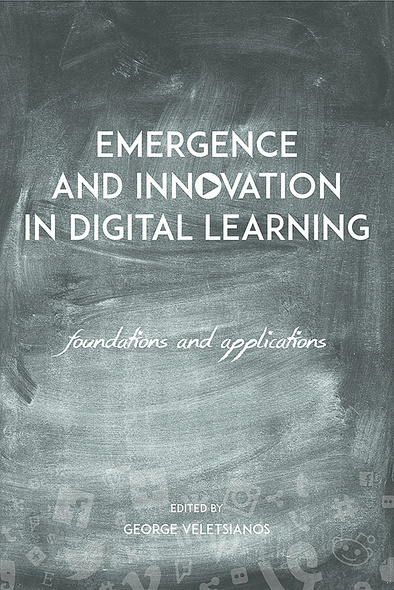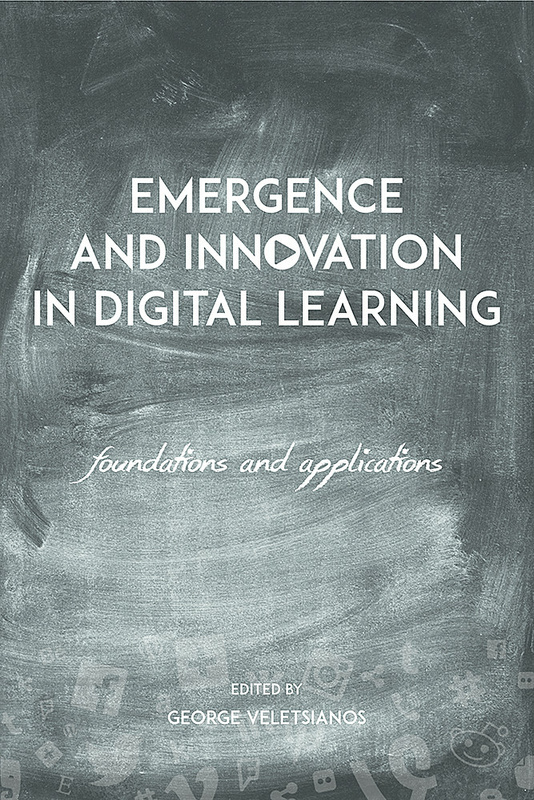Our shopping cart is currently down. To place an order, please contact our distributor, UTP Distribution, directly at utpbooks@utpress.utoronto.ca.

Emergence and Innovation in Digital Learning
Foundations and Applications
Educational systems worldwide are facing an enormous shift as aresult of sociocultural, political, economic, and technologicalchanges. The technologies and practices that have developed over thelast decade have been heralded as opportunities to transform bothonline and traditional education systems. While proponents of these newideas often postulate that they have the potential to address theeducational problems facing both students and institutions and thatthey could provide an opportunity to rethink the ways that education isorganized and enacted, there is little evidence of emergingtechnologies and practices in use in online education. Becauseresearchers and practitioners interested in these possibilities oftenreside in various disciplines and academic departments the sharing anddissemination of their work across often rigid boundaries is aformidable task.
Contributors to Emergence and Innovation in Digital Learninginclude individuals who are shaping the future of online learning withtheir innovative applications and investigations on the impact ofissues such as openness, analytics, MOOCs, and social media. Buildingon work first published in Emerging Technologies in DistanceEducation, the contributors to this collection harness thedispersed knowledge in online education to provide a one-stop localefor work on emergent approaches in the field. Their conclusions willinfluence the adoption and success of these approaches to education andwill enable researchers and practitioners to conceptualize, critique,and enhance their understanding of the foundations and applications ofnew technologies.
George Veletsianos is an associate professor atRoyal Roads University and holds a Canada Research Chair in InnovativeLearning and Technology. His research is dedicated to understanding thepractices and experiences of learners, educators, and scholars inemerging online settings. His presentations, publications, and mostrecent thoughts on education can be found at www.veletsianos.com.
Contributors to the volume include Terry Anderson, R. S. Baker,Angela D. Benson, Amy Collier, Alec Couros, Michael Dowdy, MargaretEdwards, B. J. Eib, Cassidy Hall, Katia Hildebrant, P. S. Inventado,Royce Kimmons, Trey Martindale, Rolin Moe, Beth Perry, Jen Ross,Elizabeth Wellburn, Andrew Whitworth.
Introduction
PART I: FOUNDATIONS
1. The Defining Characteristics of Emerging Technologies andEmerging Practices in Online Education / George Veletsianos
2. Complexity, Mess and Not-Yetness: Teaching Online with EmergingTechnologies / Jen Ross & Amy Collier
3. Theories for Learning with Emerging Technologies / TerryAnderson
4. Emerging Technology Integration Models / Royce Kimmons &Cassidy Hall
5. Multiple Learning Roles in a Connected Age: When Distance MeansLess Than Ever / Elizabeth Wellburn & B.J. Eib
PART II: APPLICATIONS
6. Educational Data Mining and Learning Analytics: Potentials andPossibilities for Online Education / R. S. Baker & P. S.Inventado
7. The Emergence of Practice: Two case studies of Moodle in OnlineEducation / Andrew Whitworth & Angela D. Benson
8. Issues in Research, Design, and Development of Personal LearningEnvironments / Trey Martindale & Michael Dowdy
9. Designing for Open & Social Learning / Alec Couros &Katia Hildebrandt
10. The phenomenal MOOC: Sociocultural effects of a marginallearning model / Rolin Moe
11. Arts-Based Technologies Create Community in Online Courses /Beth Perry & Margaret Edwards
Conclusion
List of Contributors




